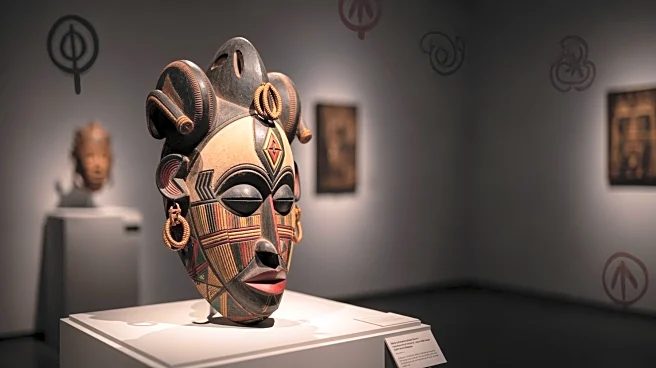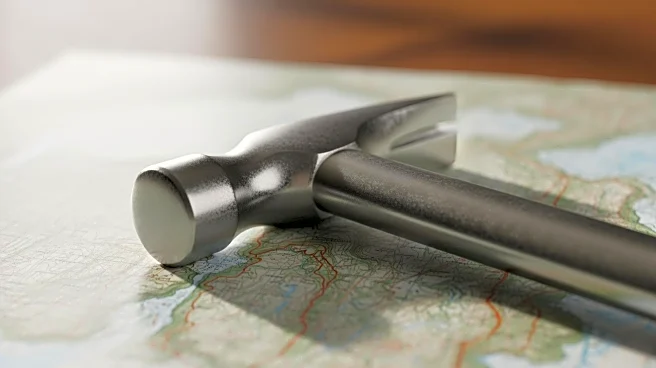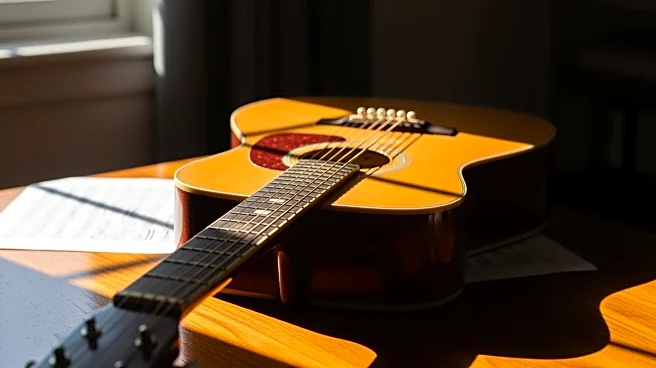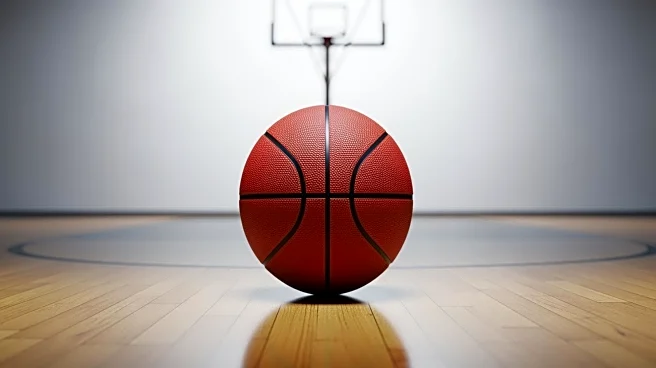What's Happening?
The Museum of Western African Art (MoWAA) in Benin City, Nigeria, faced an unexpected delay in its official opening due to protests. The museum, which has cost approximately $25 million, was set to host
a cultural program featuring the exhibition 'Nigeria Imaginary: Homecoming,' showcasing works by 11 artists. However, the event was disrupted when protestors, reportedly displeased with the museum's association with Godwin Obaseki, the former governor of Edo State, forced their way into the venue. The protestors claimed the site was under investigation, leading to the indefinite cancellation of the opening events. The museum was initially expected to house Benin Bronzes, but political disputes have prevented their transfer.
Why It's Important?
The delay in the museum's opening highlights ongoing tensions surrounding cultural heritage and restitution in Nigeria. The Benin Bronzes, looted by the British in 1897, remain a contentious issue, with various stakeholders involved in their repatriation. The protests underscore the complexities of cultural diplomacy and the challenges faced by institutions attempting to navigate local political landscapes. The museum's situation reflects broader debates on cultural ownership and the role of museums in preserving and presenting historical artifacts. The incident may impact future cultural projects and collaborations in the region, affecting stakeholders in the art and heritage sectors.
What's Next?
The museum has not announced a new opening date, leaving uncertainty about its future operations. Efforts to resolve the political and cultural disputes surrounding the Benin Bronzes are likely to continue, with potential implications for international relations and cultural diplomacy. The museum's leadership may seek to engage with local communities to address misconceptions and foster dialogue. Stakeholders, including cultural agencies and donors, will be closely monitoring developments to assess the impact on their investments and partnerships.
Beyond the Headlines
The protests at MoWAA highlight deeper issues of cultural identity and representation in Nigeria. The museum's attempt to position itself as a global standard for conservation and exhibition practices faces challenges in aligning with local expectations and historical narratives. The incident raises questions about the ethical responsibilities of cultural institutions in addressing historical injustices and fostering inclusive spaces. Long-term, the museum's experience may influence how cultural projects are approached in regions with complex historical legacies.









